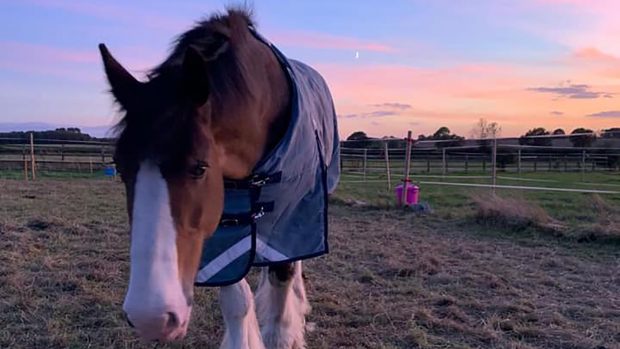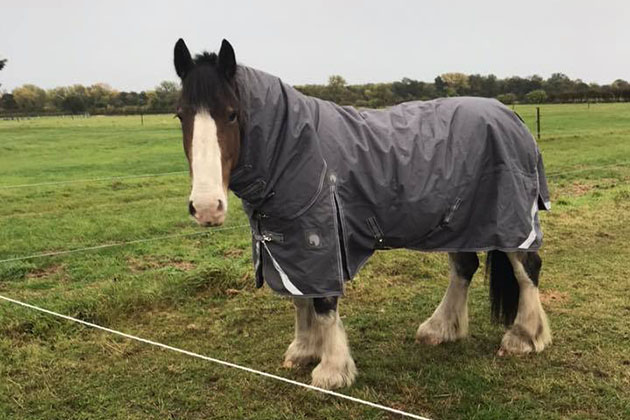I’m slightly in the doghouse over Valentine’s Day as I spent the most part of it playing golf with some friends! But, before I get accused of being a terrible husband, it was only because I was in the area picking up two new horses (pictured) and it would have been rude not to stop and see my friends who lived just down the road!
Over the past year, I have been quietly on the lookout for one or two potential dressage horses to bring on and in the space of a couple of weeks, two owners rang to ask if I would be interested in their horses, both of which I really liked. This proves the old cliché that good things really do come to those who wait!
>>> Jason Webb’s blog: Serious prospects
Both are well-bred geldings, although very different in looks and temperament. “Beans” is a beautiful bay six-year-old by Donnerhall out of an Oldenburger mare and I worked with him recently after he had come back from injury. While the other new addition, “JJ” is a black rising four-year-old by Sandro Hit out of a Hannovarian mare and I started him under saddle last year. Both are full of quality with lovely movement and I’m very excited about their futures, although I’ve been told this does mean I’m going to have to smarten up and pull on some jodphurs; what a scary thought!
It’s not often that equine science reaches the national newspapers, but I read with interest an article about new research that says horses recognise and react to positive and negative facial human expressions.
I’m not sure I have an “angry face” and “happy face” that they pick up on but I do know some days flow better than others so maybe there is a link here.
>>> Jason Webb’s blog: A very special Christmas gift
I have also had horses that definitely change their behavior around certain people. For example, some instantly recognise their owners as soon as they arrive on the yard and when I go to show how their horse has progressed they revert to their previous behaviour! In these cases, most of my work is based on teaching the owner and in turn rebuilding their relationship with their horse.
The article explained that horses look out of their left eye when they perceive a situation as “negative” as this links to the right brain that makes sense of threatening stimuli.
This is something that I come across a lot, especially with horses with a naturally more nervous disposition; they will regard everything, including humans, with their left eye.
It is a well-known saying that you want to have the horse “in both eyes”; meaning that when a horse looks at you, they look at you face on with both eyes. For example, when you are catching a horse, if you catch them with both eyes on you, you have their full attention and they are likely to be consistent in their catching. Catching a horse when you can only see one eye means they could be hedging their bets and catching a horse when you can’t see an eye, well, you’re more likely to get a double barrel coming at you!
>>> Jason Webb’s blog: A month of highs and lows
In my last blog I spoke about a nervous showjumper that I have been working with. He still has an edge to him but the good moments far outweigh the bad ones now and he has become a lot more settled. You can see his progress here: https://yourhorsemanship.com/dallas/.
Like many horses with a nervous disposition, he doesn’t cope with change well so he has set routines, not just his stable management, but one for every time he is handled and ridden; similar to how an athlete follows a set warm-up routine before they perform in order to prepare them mentally as well as physically. He is due to go home soon so time will tell if he lives up to his considerable potential.
Jason



